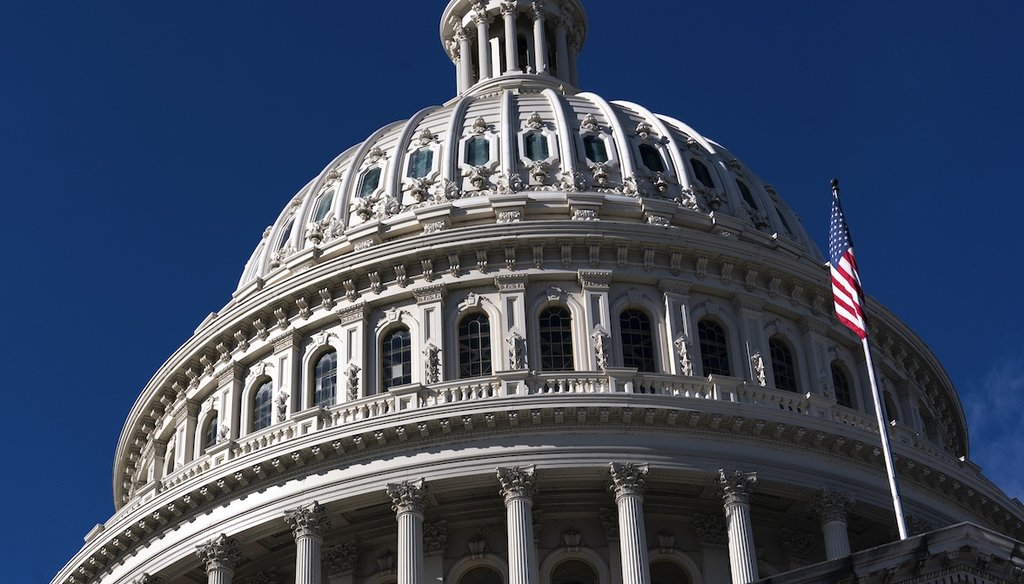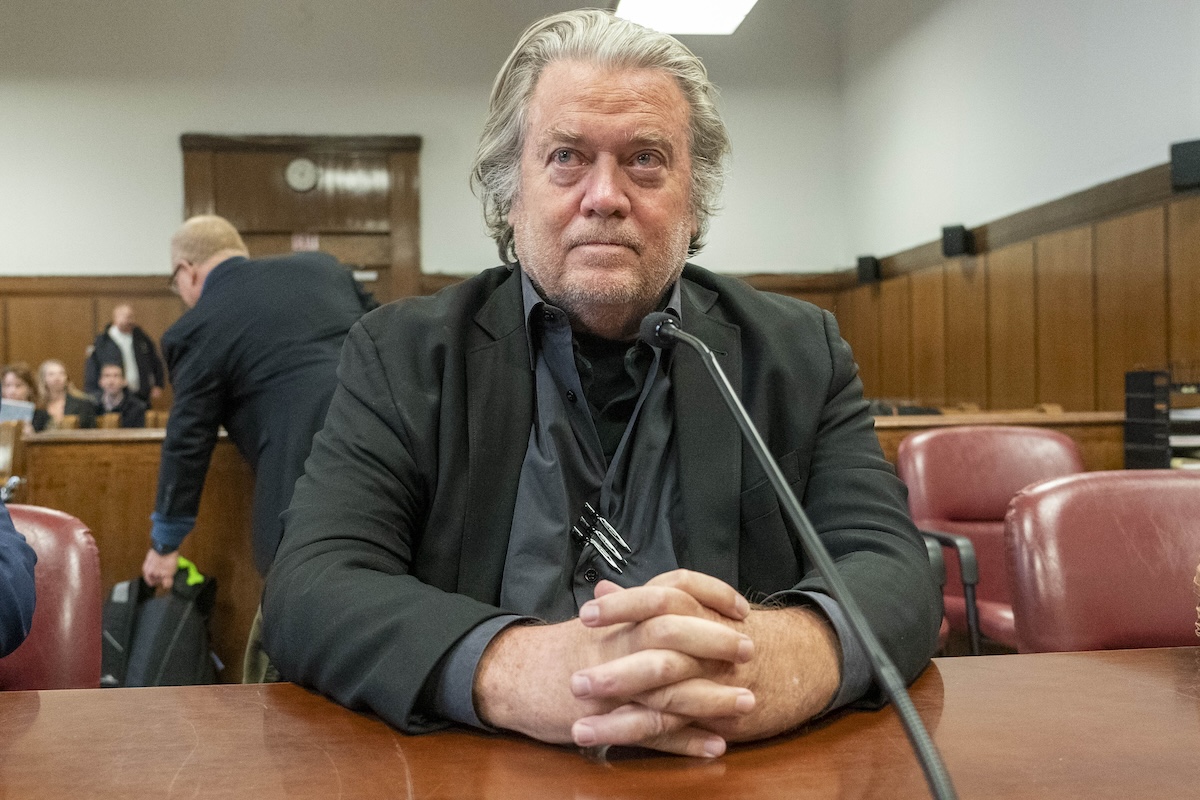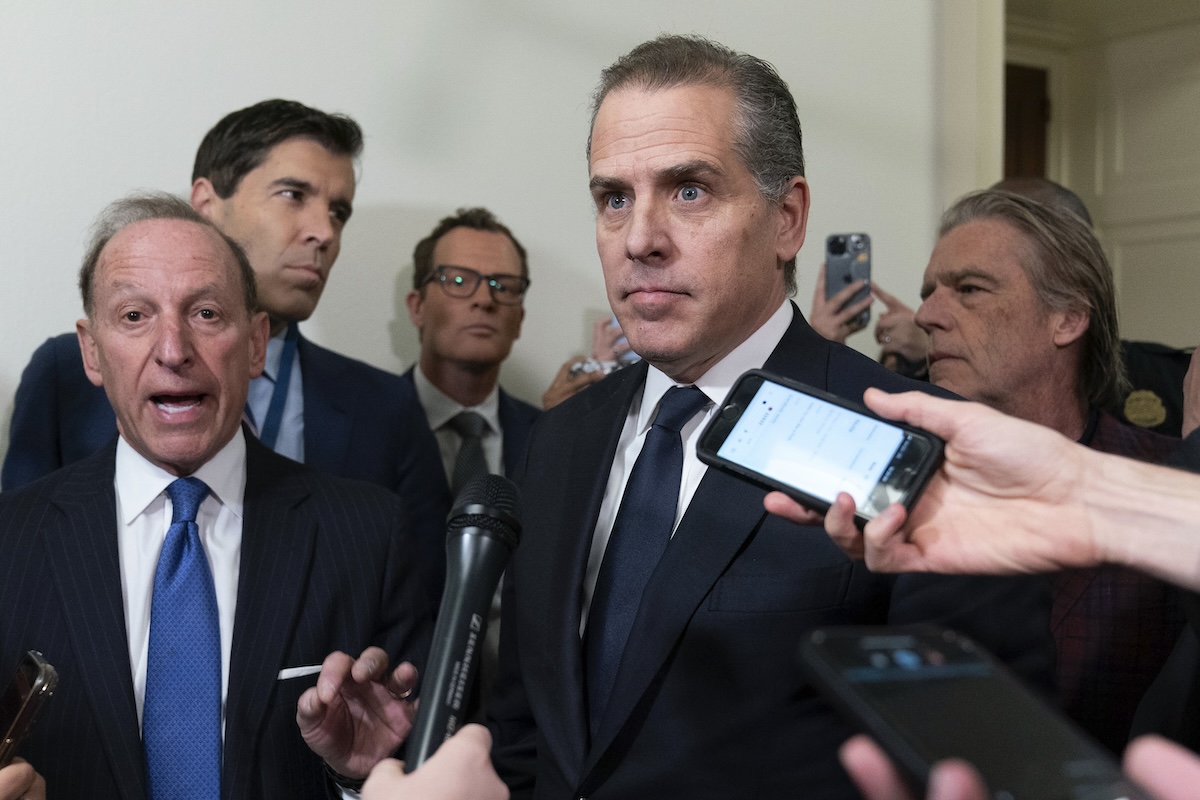Stand up for the facts!
Our only agenda is to publish the truth so you can be an informed participant in democracy.
We need your help.
I would like to contribute

The Capitol Dome is seen April 9, 2024, in Washington, D.C. (AP)
If Your Time is short
-
Former Trump administration adviser Steve Bannon was sentenced to four months in prison after he was convicted on contempt of Congress charges for disobeying a subpoena from the House’s Jan. 6 select committee. A judge recently ordered Bannon to report to prison by July 1.
-
Hunter Biden initially refused a subpoena to testify privately in front of House Republicans conducting an impeachment inquiry into his father, President Joe Biden. Hunter Biden offered to testify publicly instead.
-
Hunter Biden eventually agreed to testify privately. The House did not vote on whether to hold him in contempt.
After a federal judge ordered Steve Bannon, a political strategist and former adviser to then-President Donald Trump, to serve a four-month prison term for contempt of Congress, social media users drew comparisons to President Joe Biden’s son, Hunter.
A June 6 Instagram post showed a photo of Bannon with text above it that read, "A judge just sent Steve Bannon to prison for ignoring a congressional subpoena. Hunter did the same thing. No prison."
Other Instagram posts made similar claims. These posts lack context.
The Instagram posts were flagged as part of Meta’s efforts to combat false news and misinformation on its News Feed. (Read more about our partnership with Meta, which owns Facebook and Instagram.)
Subpoenas are orders to produce records or testimony. Courts, government agencies and Congress have the power to issue subpoenas, and failure to comply can result in civil or criminal penalties.
Sign up for PolitiFact texts
Although both Bannon and Biden disobeyed congressional subpoenas, Bannon received a prison sentence because he was convicted of contempt of Congress. Biden ultimately agreed to testify in front of Congress, so he did not face contempt charges.
Steve Bannon appears in court in New York, Jan. 12, 2023. (AP)
What happened when Steve Bannon was subpoenaed
On Sept. 23, 2021, the House select committee that investigated the Jan. 6, 2021, attack on the U.S. Capitol subpoenaed Bannon, requiring him to produce documents and testify before the committee. Bannon refused to comply.
Then, on Oct. 21, 2021, the House of Representatives voted 229-202 to hold Bannon in contempt for defying the Jan. 6 committee’s subpoena. The vote was largely along party lines, with nine Republican members joining Democrats who then controlled the House.
After this vote, the House referred the matter to the U.S. attorney’s office in Washington, D.C., and Bannon was indicted on two counts of contempt of Congress; he was found guilty of these counts in July 2022.
In October, 2022, he was sentenced to four months in prison and ordered to pay a $6,500 fine. (Each count of contempt of Congress is punishable up to one year in prison and up to $100,000 in fines, according to the Justice Department.)
Judge Carl J. Nichols allowed Bannon to remain free while appealing the decision. After a federal appeals court in May upheld Bannon’s contempt conviction, Nichols ordered Bannon to report to prison by July 1.
Hunter Biden, President Joe Biden's son, talks to reporters as they leave a House Oversight Committee hearing as Republicans considered holding him in contempt of Congress, Jan. 10, 2024, on Capitol Hill in Washington. (AP)
What happened when Hunter Biden was subpoenaed
In November 2023, Republicans on the House Oversight Committee issued a subpoena to Hunter Biden, demanding he appear before lawmakers in a closed-door meeting. House Republicans subpoenaed other Biden family members as well.
The subpoenas were part of the Republicans’ impeachment inquiry into President Biden, which focused on Hunter Biden’s international business affairs and whether President Biden profited from them.
Initially, Hunter Biden refused to comply with the subpoena, offering instead to testify at a public hearing. Republicans rejected this offer, saying they wanted Biden to testify privately first.
After months of back and forth, both parties agreed in January to hold a private deposition Feb. 28 under terms that the meeting would not be filmed and House Republicans would quickly release a transcript.
Before the agreement was reached, House Republicans had been preparing to bring a vote to the full chamber on whether to hold Biden in contempt of Congress. If the House had voted to hold Biden in contempt, the issue would have been referred to the Justice Department, as it was in Bannon’s case.
Because Biden ultimately agreed to testify before Congress and he was not charged with contempt of Congress, he was not sentenced to prison.
Our Sources
Instagram post (archived version), June 6, 2024
Instagram post (archived version), June 6, 2024
Instagram post (archived version), June 7, 2024
Department of Justice, "Stephen K. Bannon Indicted for Contempt of Congress," Nov. 12, 2021
Department of Justice, "Stephen K. Bannon Found Guilty by Jury of Two Counts of Contempt of Congress," July 22, 2022
Department of Justice, "Stephen K. Bannon Sentenced to Four Months in Prison on Two Counts of Contempt of Congress," Oct. 21, 2022
The New York Times, "House Finds Bannon in Contempt for Defying Jan. 6 Inquiry Subpoena," Oct. 21, 2022
The New York Times, "Bannon Indicted on Contempt Charges Over House’s Capitol Riot Inquiry," Nov. 12, 2021
The New York Times, "Judge Orders Bannon to Surrender for Prison Term by July 1," June 6, 2024
The Associated Press, "House Republicans subpoena Hunter and James Biden as their impeachment inquiry ramps back up," Nov. 8, 2023
NBC News, "Hunter Biden defies House Republican's subpoena that he testify in private," Dec. 13, 2023
The Associated Press, "Hunter Biden agrees to private deposition with Republicans on Feb. 28," Jan. 18, 2024
The Associated Press, "Republicans push ahead with Hunter Biden contempt charge after his surprise visit to Capitol Hill," Jan. 10, 2024






























